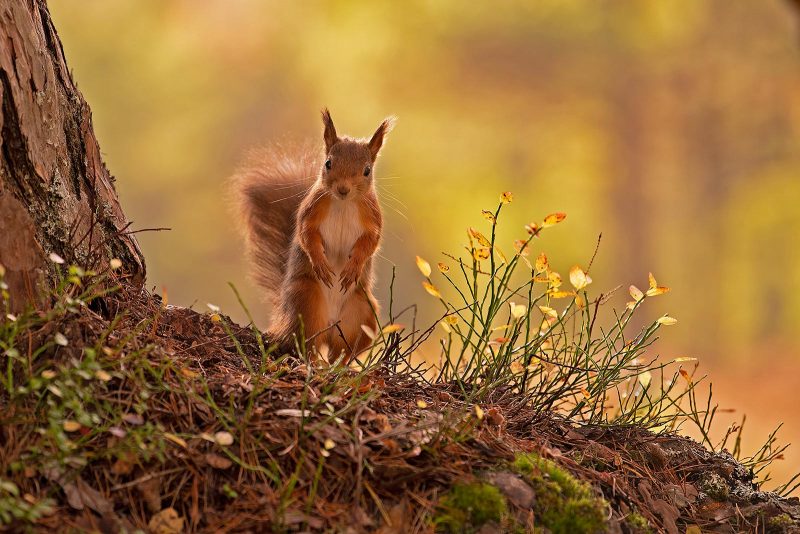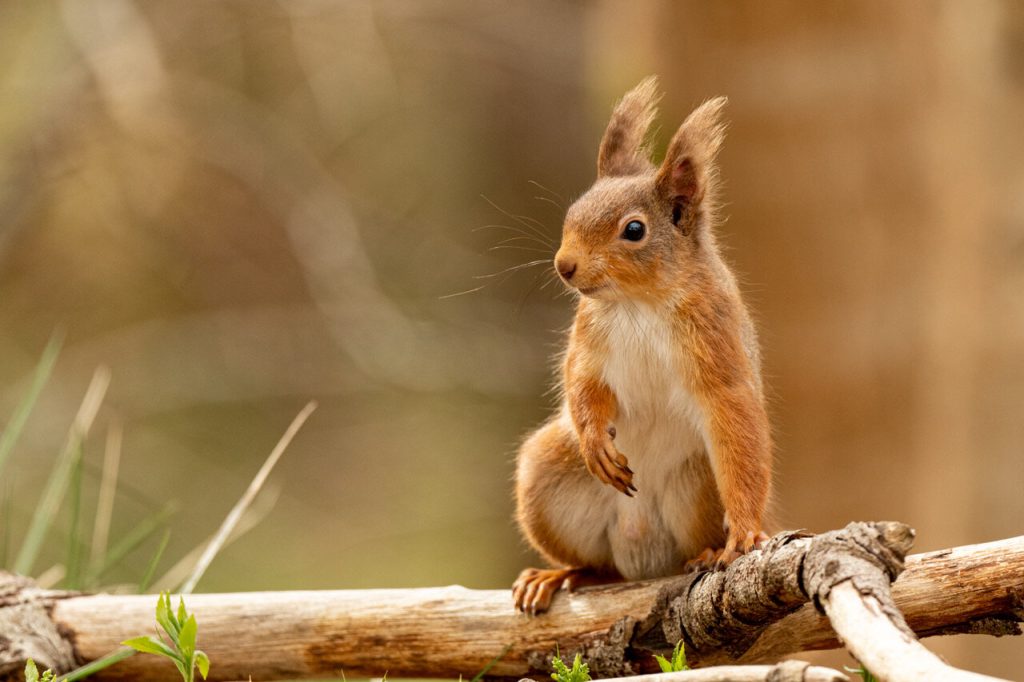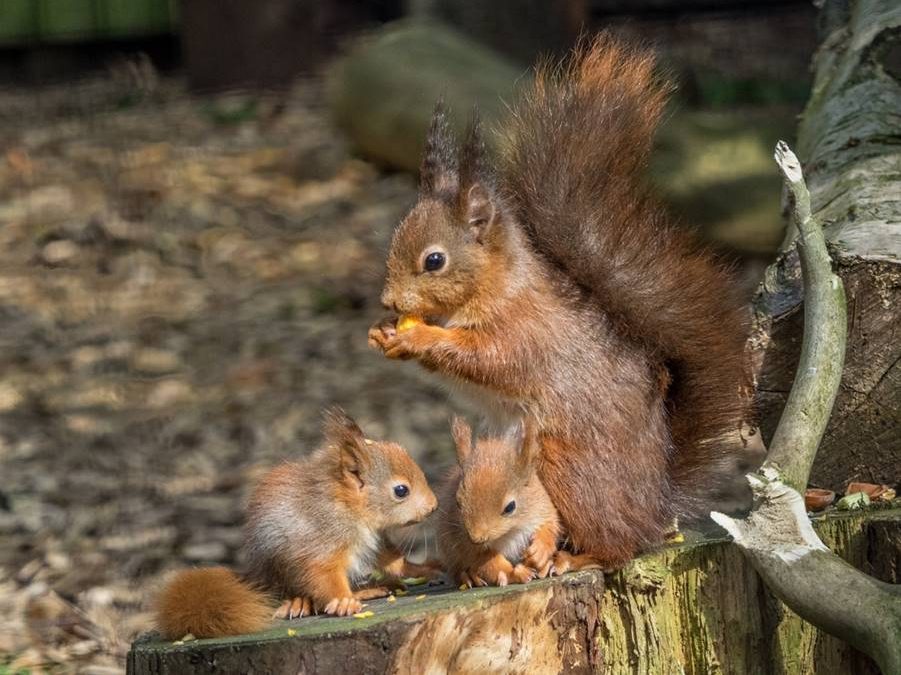Squirrels, members of the rodent family, are a common sight in both urban and suburban environments. They have adapted well to living alongside humans and can be found in parks, gardens, and even in residential neighborhoods. Although squirrels are often seen as cute and harmless creatures, they can have a significant impact on their surroundings.
In this essay, we will explore the impact of squirrels on urban and suburban environments in detail, including their role in the ecosystem, their behavior, and the effects of their presence on both wildlife and human beings.

Ecological Impact of Squirrels
Squirrels are an important part of the ecosystem, as they play a vital role in seed dispersal and forest regeneration. They bury nuts and seeds in the ground, and some of them will eventually sprout and grow into new plants. This process helps to maintain the diversity of plant life in our forests and parks.
However, the impact of squirrels on the environment can be negative as well. For example, squirrels can damage trees by stripping the bark from branches and trunks. This can weaken the tree and make it more susceptible to disease and insect infestations. In some cases, squirrels can even gnaw through electrical wires, which can cause power outages and other problems.
Squirrels can also have a negative impact on bird populations. They are known to raid bird nests and eat eggs and chicks. This can reduce the number of birds in an area and disrupt the natural balance of the ecosystem.
Another ecological impact of squirrels is their effect on other small mammals. Squirrels are territorial animals and will often chase away other small mammals, such as chipmunks and voles, from their territory. This can reduce the diversity of mammal species in an area and may have long-term effects on the ecosystem.
Behavior of Squirrels
Understanding the behavior of squirrels is crucial in understanding their impact on the environment. Squirrels are active during the day and are known for their ability to climb trees and jump long distances. They are also adept at digging and burrowing, which allows them to build nests and store food.
Squirrels are opportunistic feeders and will eat a variety of foods, including nuts, seeds, fruits, and insects. They are also known to raid bird feeders and garbage cans in search of food. This behavior can lead to conflicts with humans, as squirrels can cause damage to property and create a mess.
During the fall, squirrels engage in a behavior known as caching. This involves burying nuts and seeds in the ground, and then later retrieving them when food is scarce. Squirrels have an excellent memory and can remember the locations of their caches, even months later.

Effects of Squirrels on Humans
Squirrels can have both positive and negative effects on humans. On the positive side, they provide entertainment and enjoyment for many people. Watching squirrels play in trees or burying nuts can be a source of amusement and relaxation.
Squirrels also have a practical benefit for humans, as they help to disperse seeds and maintain the diversity of plant life in urban and suburban areas.
However, squirrels can also cause problems for humans. As mentioned earlier, they are known to raid bird feeders and garbage cans, which can create a mess and attract other wildlife. They can also cause damage to property by chewing through electrical wires or damaging trees.
Squirrels can also carry diseases such as salmonella and leptospirosis, which can be transmitted to humans through contact with their feces or urine. This can be a serious health risk, particularly for children and the elderly.
In addition, squirrel infestations can be a nuisance for homeowners. Squirrels may build nests in attics or crawl spaces, which can cause damage to insulation and wiring. They can also create noise and odors that can be disruptive to daily life.

In conclusion, squirrels have a significant impact on both urban and suburban environments. While they play an important role in the ecosystem by dispersing seeds and maintaining plant diversity, they can also cause damage to trees, disrupt wildlife populations, and create problems for humans.
To mitigate the negative effects of squirrels, it is important to understand their behavior and take steps to prevent conflicts with humans. This can include using squirrel-proof bird feeders, securing garbage cans, and sealing up entry points to homes to prevent squirrel infestations. By working to coexist with squirrels in our urban and suburban environments, we can enjoy the benefits they provide while minimizing the negative impacts they may have.